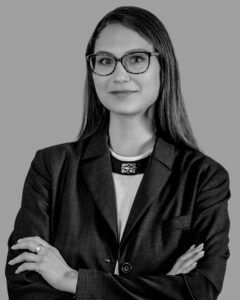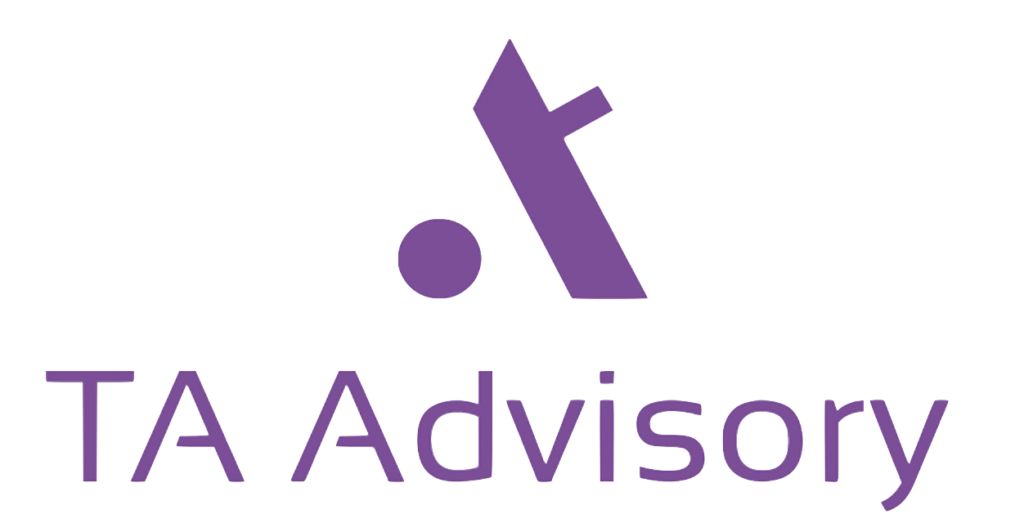The aim of the present article is to clarify the purpose of a UK Office of Financial Sanctions Implementation (“OFSI”)[1] licence, but also to guide users through an application for a licence.
1. Introduction
Generally speaking, a licence can be issued to allow activity that would otherwise be prohibited by UK financial sanctions to take place. Basically, any person or organisation involved in a transaction with those subject to financial sanctions will first need a licence from OFSI.
For OFSI to issue a licence, there must be:
- a UK designated person (“DP”) or Entity;
- or a person or entity which is controlled by a UK DP;
- or a UK nexus from a part of the transaction who is obliged to comply with UK financial sanctions.
Licences can generally be obtained where the proposed transactions are for:
- covering expenses such as food, rent and medicines (referred to as basic needs)
- reasonable professional legal fees or reasonable expenses associated with the provision of legal services
- prior obligations (if the obligation/contract started before the sanction was imposed)
- covering the payment of fees/service charges for routine holding or maintenance of frozen funds or economic resources
- pre-existing judicial decisions
- extraordinary expenses, where considered appropriate
- extraordinary situations, where considered appropriate (only for non-UN listed persons)
- humanitarian assistance
- diplomatic missions
All the derogations can be found in the relevant regulations, specific for the regime, for example, in Schedule 5 of the Russia (Sanctions) (EU Exit) Regulations 2019 (Treasury Licences)[2]. The OFSI General Guidance also provides additional guidance on derogations which are consistent across all regimes, e.g basic needs.
Generally speaking, licences should be specific, including the full payment route, the full transaction details and all the involved parties to that transaction and route.
Regarding point 2) (legal fees and derogations), the OFSI usually proceed to an assessment of reasonableness. As in the EU, a lawyer does not need a licence to provide legal services, but merely to be paid.
I should be emphasized that there are some restrictions on providing legal advice to non-sanctioned Russian individuals.
A new law led by Ministry of Justice and the Foreign, Commonwealth and Development Office (FCDO) introduced on 29 June 2023 prevents UK lawyers from advising Russian companies in certain business deals. This could include trade deals between global corporations, or international money lending. The new rules extend existing regulations on Russia using UK legal professionals to facilitate certain commercial activity which benefits the country – and may block legal professionals from advising international companies on lending decisions to Russian businesses, for example.[3]
Regarding point 4), which is the derogation for routine holding and payment of various fees to maintain assets (following an asset freeze), the OFSI will analyse the aspect of necessity and also assess the dangers to which the frozen asset might be exposed.
2. General licences
A general licence allows multiple parties to undertake activities which would otherwise be prohibited.
General licences have been issued to:
- Assist in the implementation of new sanctions measures;
- Allow for the winding down of relationships when new designations are made;
- Permit the continuation of UK businesses or allow large-scale global insolvencies to proceed;
- Address common specific licence applications the OFSI receives for routine payments, and;
- Align the UK’s interests with foreign partners.
Each general licence will include specific conditions which must be complied with for the licence to be applicable.
All general licences are published on the OFSI website and are accompanied by a publication note.
It is the responsibility of any party using a general licence to ensure the activities they undertake fall within the terms of the licence. If in any doubt, independent legal advice should be sought.
Regarding the policies and the decision making process, the OFSI may use its own discretion to refuse to license particular activities, where allowing the activity would undermine purpose or the effectiveness of that financial sanctions regime.
The 16 principles help clarify the OFSI’s interpretation and applicability of the various licensing grounds in relation to DPs. The complete list of those 16 principles can be found on online, listed in general hierarchical order.[4]
These will also help applicants better understand the circumstances under which the OFSI may refuse to license certain activities, even where a licensing ground is met. When applying, it is strongly recommended to make reference to said principles in the application form – this will help the OFSI to assess the request swiftly.
It is important to note that the OFSI is unlikely to allow licences that deviate from these principles.
Anybody can apply for a licence to permit a series of transactions, whether it be the DP themselves, the customer, the bank, or a relevant third party. However, it is recommended coordinating between those interested parties to avoid duplication of applications.
3. Licence application process
The licence application process is divided in 5 stages.
Stage 1: the OFSI conducts an initial assessment of the application and gathers all genuine evidence that needs prioritisation (e.g. risk for life, risks of quick devaluation of an asset, indebtment…).
Stage 2: the OFSI gathers all relevant information, such as the parties, who the designated person is, what is the specific activity concerned.
Stage 3: the OFSI assesses the application, i.e. seeks legal advice.
Stage 4: the OFSI makes the decision.
Stage 5: the last stage is the outcome notification and, if applicable, the licence issuance. Licences will be issued by e-mail.
To the eternal question of “how much time should you allow to obtain a licence?”, the answer will be – it depends, as far as possible in advance. Applications can be complex to assess, but generally an application and subsequent issuance of licence would take at least a couple of months in most not complex cases.
A licence will most certainly have an “expiry date” – each specific licence will have relevant terms and stipulations that must be complied with, particularly in terms of the validity date.
The OFSI, or the NCA, can undertake enforcement action in the event of non-compliance.
4. Licencing amendment requests
The OFSI has a new policy in terms of amendment request to an existing licence.
Any request for a licence amendment should be submitted to the OFSI by e-mail as soon as it is apparent that a change is required.
The completed (and amended) for must be send on a new e-mail chain, with a clear mention of the original licence case reference number in the body of the e-mail. Multiple amendments to a single licence should be grouped in the same e-mail.
Indeed, the OFSI previously had some difficulties arising in locating the correct case and ensuring it is assigned to a caseworker. It is important for applicants to understand that amendment cases may not be taken forward by the original caseworker.
The new online form will soon be published on the OFSI website, allowing the OFSI to make a clearer distinction between previous licences and their changes, and will also benefit applicants as it will help avoiding delays the processing the applications.
5. Return without Action
Return without Action is the new OFSI process that allows the OFSI to focus on applications which are ready to be progressed, where a licence is needed.
Incomplete applications will have key information missing, such as who the DP is, why a licencing derogation applies, what the UK nexus is and what the payment route for a specific transaction is.
If an applicant receives a Return without Action, this basically means that the OFSI will not be able to take the application forward. However, in such case the OFSI will provide clear information about what was missing in the first application.
6. Various questions that may arise
1. Even when a charity works only with non-designated person, this doesn’t mean that it can continues acting as before the implementation of UK sanctions. NGOs are included in the restrictions scope – therefore, when working with non designated Russians, even a payment to a designated bank could trigger the sanctions. All routes must be sanctions compliant and due diligence must be carefully conducted.
2. Only one licence application must be filled out per activity, and only one person needs to do the application for such activity. This means that the OFSI doesn’t need – and doesn’t want – to receive multiple applications for the same transaction, as this will be confusing and will lengthen the licencing procedure.
3. In should be noted that if legal advice is sought, the process might go faster. Indeed, the OFSI gives priority to applications on their merit and urgency, and a good quality licence application prepared by a lawyer will allow to fasten the process.
4. A licence isn’t required if sanctions evasion is suspected. Licences only allow activity which hasn’t taken place yet and have no retroactive effect. If breach and sanctions evasion is suspected, this should be reported, and the matter will be analysed by the enforcement team.
5. All the information provided as part of the application for a licence shall be disclosed to third parties only in compliance with the UK General Data Protection Regulation and the Data Protection Act 2018.
6. In relation to the derogation relating to legal fees and expenses, the Regulations provide that the legal fees and expenses should be “reasonable” however the requirement does not require OFSI to consider “proportionality” of the estimated legal fees and expenses, in a manner which the Court is required to do whilst exercising its costs management powers in a litigation. The OFSI considers each application on a case-by-case basis and has a specific guidance on how reasonableness for legal fees is assessed.[5] It is for the applicant to demonstrate to OFSI that the legal fees and expenses they are requesting payment for are reasonable. The assessment will be carried out based on the following criteria:
- Whether the work has already taken place or if it is anticipated work;
- What the work will involve/has involved;
- Which fee earner(s) will be/have been involved in the work (and their position(s)/role(s) within the firm, including relevant level of experience);
- The fee earner(s)’ hourly rate;
- How many hours each fee earner(s) will be estimated to spend/has already spent on each workstream;
- Any supporting evidence as to why the involvement and/or the number of hours of the particular fee earner(s) is reasonable and/or proportionate to the nature and complexity of the work;
- Any expenses that are expected and have been paid out; and
- If any expenses are expected, why are they necessary.
7. Each general licence will include requirements for prior notification of use, record-keeping and reporting. These are determined on a case-by-case basis. Requirements will be stated in each general licence.
8. In a firm wants to verify that a specific licence is legitimate, it can contact OFSI for general inquiries and provide copy of licence given.
[1] https://www.gov.uk/government/organisations/office-of-financial-sanctions-implementation
[3] https://www.gov.uk/government/news/new-law-imposes-fresh-sanctions-on-russia-accessing-uk-legal-expertise
[4] https://www.gov.uk/government/publications/financial-sanctions-licensing/ofsi-licensing-designated-individuals-licensing-principles–2#fundamental-principles
[5] https://ofsi.blog.gov.uk/2021/06/30/reasonableness-in-licensing/
For further details on this topic, please do not hesitate to contact us.
Sanctions
Against the backdrop of recent international developments, particularly those related to Ukraine and Russia, complex economic sanctions and new rules governing relations with sanctioned countries and their citizens continue to evolve. Asset freezes, commercial bans, airspace closures, and individuals falling under personal sanctions are all changing rapidly in response to foreign policy developments.



